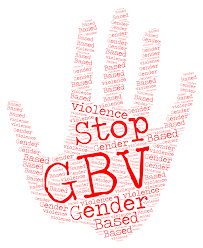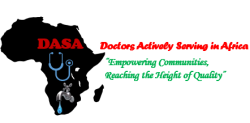 Gender-Based Violence (GBV)
Gender-Based Violence (GBV)
GBV is a public health crisis in the world. World Health Organization estimates that 1 out of 3 women in the world experiences violence (physical or sexual), lack of opportunity for education for women and girls which negatively affect their children and families.
GBV violates human rights, undermines the safety and dignity of the individuals and also destabilizes the financial stability of the communities. In South Sudan, the challenges driving GBV are the following among others:
- High prevalence of Child marriage before 18years of age
- Food insecurity and shocks like the flooding have increased women and girls GBV vulnerability risk.
- Social norms and customs that reinforces many forms of violence against women and girls.
- Inadequate support opportunities to survivors of GBV to access services.
- Gender discrimination and stigma preventing GBV survivors for accessing care and support services
- Lack of accountability from the perpetuators of GBV
DASA GBV Interventions
Provision of GBV prevention and response services in priority areas
Awareness raising for children, women and girls to increase knowledge about child marriage, forms of GBV, prevention and mitigation strategies.
Engage community, faith-based leaders and school leadership on girl child education, menstrual hygiene management, GBV in school/home, access to support services and referral pathways and ending early child marriage.
Women and girls’ empowerment to demand for their own rights
Provide support services to survivors of GBV
Increase access to safe spaces for women and girls
Training on income generation and skills building activities
Round table discussions and conferences to address GBV issues
Encourage and support women political participation
Engage men and boys in the communities as allies and partners to mitigate GBV
Peace Building
DASA PEACE BUILDING INTERVENTIONS
- Strengthening social cohesion through community based social therapy (CBST); Mixed group activities like sports, livelihoods local arts, etc.; peace and risk education
- Community based security, conflict prevention and resolution strategies
- Building local community capacities in peace building and conflict resolution
- Reducing land, cattle, natural resources, and water related conflicts
- Strengthening community resilience, local peace building infrastructure, and local ownership/leadership
- Promoting inclusive dialogue process, participatory conflict and resource mapping
Child Protection
The childhood privileges for many Children in South Sudan is been stolen slowly but surely by recruitment into armed forces, 52% being married before maturity of 18 years, separation from parents leaving them prone to all sorts of vices like violence, physical and sexual abuse and exploitation. No child dies from preventable diseases before their fifth birthday and that all forms of violence against children are eliminated.
DASA Interventions to Protect Children
- To provide protection assistance to refugees, displaced persons and those affected due to conflicts, violence particularly for children, women, girls and other vulnerable groups.
- Advocacy at all levels to ensure children protection from all forms act that rob them of their childhood rights
- Support the provision of a safe child friendly environment.
- Provide child family reunion and integration support
- Advocate for non-recruitment of children into armed forces.
- Provide Child sensitive social protection and child sensitive livelihoods
